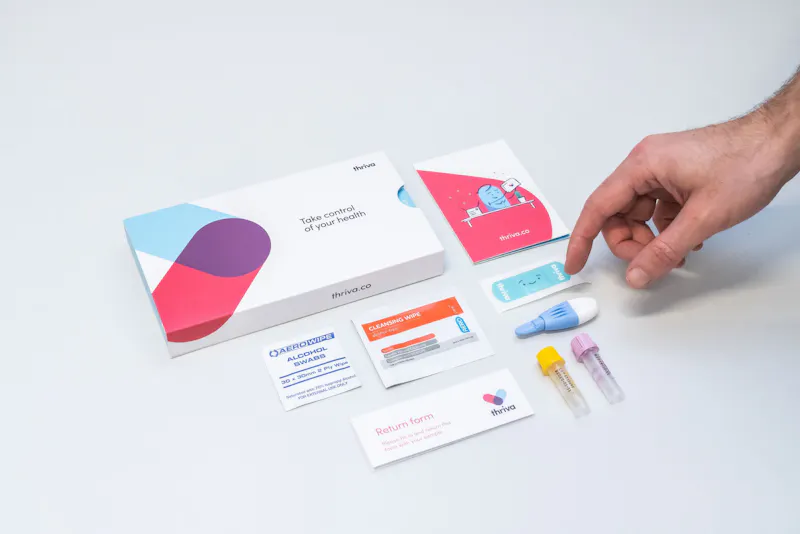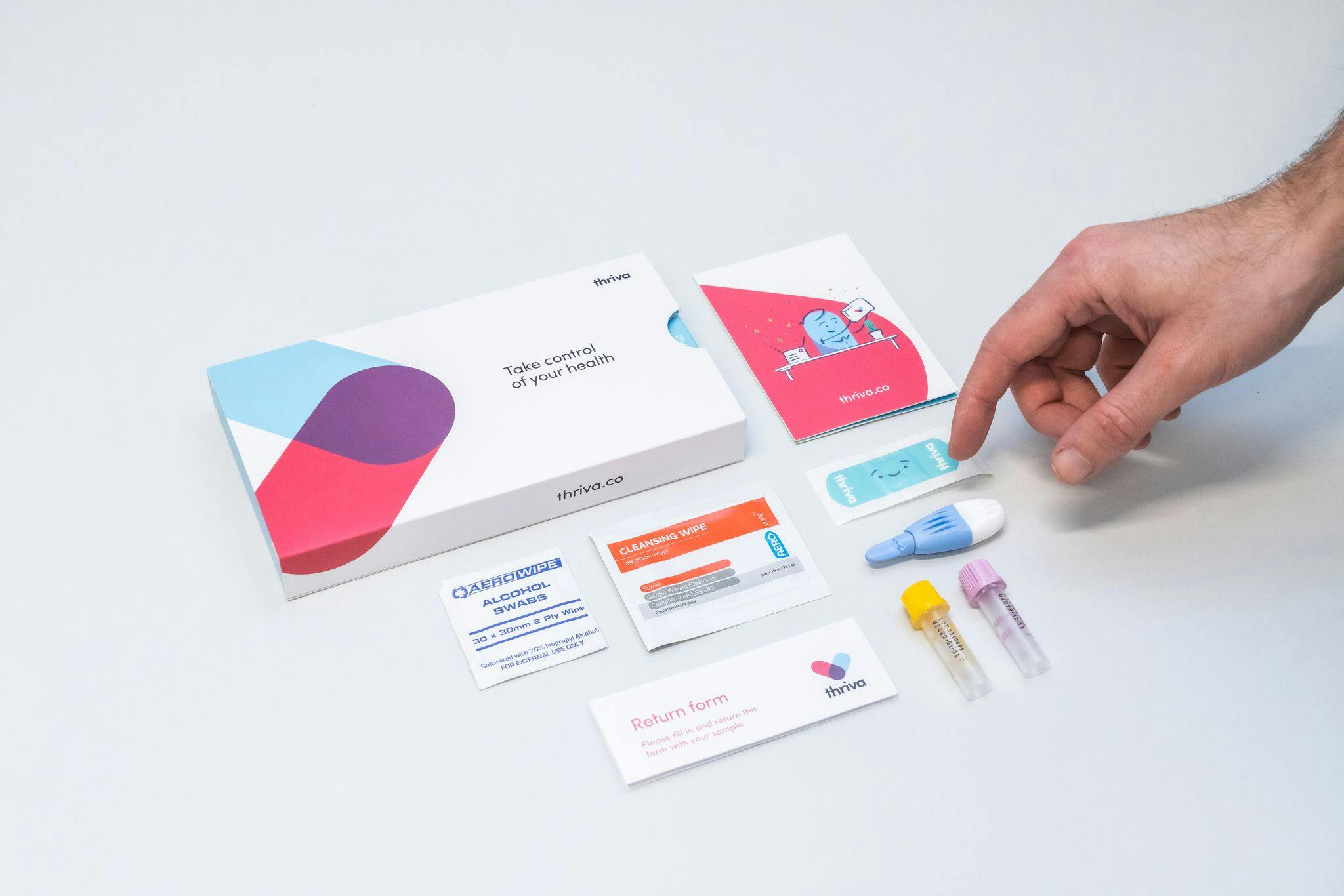The 3 main types of cholesterol
What's covered?


There are 3 main types of cholesterol — LDL, VLDL, and HDL. While some cholesterol is essential for your health, if your LDL and VLDL levels are too high it's linked to an increased risk of heart disease. While HDL cholesterol can actually help to protect against heart disease.
What is cholesterol?
Cholesterol is a fatty substance (a lipid) found in your blood. It’s also found in some foods — like eggs, meat, and dairy.
Some cholesterol is essential for your health. For example, it helps to make hormones and vitamin D. But too much cholesterol can lead to health problems — like an increased risk of heart disease.
There are 3 main types of cholesterol, and these affect your health and risk of heart disease in different ways.
Types of cholesterol
The 3 main types of cholesterol include:
- low-density lipoprotein — LDL cholesterol
- high-density lipoprotein — HDL cholesterol
- very-low-density lipoprotein — VLDL cholesterol
In addition to these types, you might sometimes read about:
- total cholesterol — your LDL and HDL levels combined
- non-HDL cholesterol — your total cholesterol minus your HDL (helps calculate your VLDL cholesterol)
- intermediate-density lipoprotein (IDL) cholesterol — formed when VLDL and HDL is broken down
- ultra low-density lipoproteins (chylomicrons) — made up of lipids (like cholesterol), proteins, and triglycerides
- triglycerides — this is another type of lipid in your blood that can help indicate your risk of heart disease
What does LDL cholesterol do?
LDL cholesterol is often referred to as “bad cholesterol”. This is slightly oversimplified as LDL helps to deliver cholesterol to your cells — which is essential for your health. But, if the amount of LDL circulating in your blood is too high, it’s strongly associated with a higher risk of heart disease.
This is because high amounts of LDL circulating in your blood can lead to a build-up of fatty deposits on your arteries (cholesterol plaque). This process narrows and sometimes blocks your blood vessels (atherosclerosis). This affects your blood flow and can lead to:
- high blood pressure
- chest pain (angina)
- stroke
- heart attack
- chronic kidney disease
It’s important to note that this process takes place over many years. If you know your LDL levels are raised, there are many things you can adopt in your lifestyle to help lower them. In a nutshell, there’s a lot you can do to reverse the process.
Decades of research supports the role LDL cholesterol can play in the development of heart disease. But it’s only one of many factors that contributes to the development of heart disease.
What does HDL cholesterol do?
HDL cholesterol is often called “good cholesterol”. This is because HDL helps to return LDL cholesterol from your arteries to your liver, where it can be removed from your body.
This process stops plaque from building up on the walls of your arteries — helping lower your risk of heart disease. If your HDL levels are too low, it can actually increase your risk.
What does VLDL cholesterol do?
Your liver produces VLDL cholesterol. VLDL transports triglycerides in your blood — where your body will either store the triglycerides or use them for energy. Similar to LDL cholesterol, VLDL is linked to a build-up of plaque on your arteries.
How to check your cholesterol
A cholesterol blood test measures your LDL cholesterol, HDL cholesterol, total cholesterol, and triglyceride levels — sometimes called a lipid test.
VLDL is difficult to measure directly. A lab will usually use your triglyceride levels to estimate your VLDL levels — usually about ⅕ of your triglyceride level.
By understanding which types of cholesterol are out of range, you can focus on lifestyle factors that can improve each type specifically.

How to lower LDL cholesterol
Eat foods high in soluble fibre
Foods like oats, kidney beans, Brussels sprouts, and apples contain soluble fibre. This type of fibre helps to "mop-up" LDL cholesterol — helping lower your levels.
Follow a Mediterranean diet
This describes the traditional diet of countries that border the Mediterranean Sea. While this type of diet varies by country, it’s typically high in fruit, vegetables, legumes (like chickpeas), beans, nuts, whole grains, and fish. It’s also high in unsaturated fats, like olive oil. And usually includes low amounts of meat, dairy, and alcohol.
Do some regular endurance exercise
Exercise helps to move LDL cholesterol to your liver, where it's removed from your body. National guidelines recommended 150 minutes of moderate-intensity or 75 minutes of high-intensity exercise a week.
How to lower VLDL cholesterol
Because your VLDL cholesterol levels are largely influenced by your triglyceride levels, reducing these will help reduce your VLDL levels.
Eat mindfully
Your body makes triglycerides when you take in more calories than you need. Eating mindfully can help prevent this. Mindful eating includes following hunger cues, eating slowly, chewing thoroughly, thinking about how it makes you feel, and stopping when full.
Keep your alcohol intake low
In susceptible people, very small amounts of alcohol can raise triglyceride levels. Having no more than 14 units a week (about 6 pints or 7 medium-sized glasses of wine) can help keep triglyceride levels low. As well as having a few alcohol-free days and not binge drinking.
Get enough omega-3 fats
Omega-3 fats might help to lower triglyceride levels, as well as your blood pressure and risk of clotting. Oily fish, like salmon, is one of the best sources of omega-3s. There are some plant sources of omega-3, like chia seeds and walnuts. But your body finds it harder to use this type of omega-3, so EPA/DHA supplements can help.
How to increase HDL cholesterol
Do some regular high-intensity exercise
Exercise is linked to an increase in your HDL cholesterol levels. For this positive effect, you need to do high-intensity exercise — lower-intensity exercises, like walking, don't seem to have the same benefit.
Avoid smoking
Smoking cigarettes is linked with lower HDL cholesterol levels, as well as affecting how well it can function. Quitting smoking can lead to quick improvements in your HDL levels.
Gepner, A. D., Piper, M. E., Johnson, H. M., Fiore, M. C., Baker, T. B., & Stein, J. H. (2011). Effects of smoking and smoking cessation on lipids and lipoproteins: outcomes from a randomized clinical trial.American heart journal,161(1), 145-151.
He, B. M., Zhao, S. P., & Peng, Z. Y. (2013). Effects of cigarette smoking on HDL quantity and function: implications for atherosclerosis.Journal of cellular biochemistry,114(11), 2431-2436.
Hokanson, J. E. (1998). Hypertriglyceridemia as a cardiovascular risk factor. The American journal of cardiology, 81(4), 7B-12B.
Howard, B. V., Robbins, D. C., Sievers, M. L., Lee, E. T., Rhoades, D., Devereux, R. B., … & Howard, W. J. (2000). LDL cholesterol as a strong predictor of coronary heart disease in diabetic individuals with insulin resistance and low LDL: The Strong Heart Study. Arteriosclerosis, thrombosis, and vascular biology, 20(3), 830-835.
Koskinas, K. C. What is the role of lipids in atherosclerosis and how low should we decrease lipid levels?.